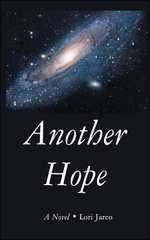On my drive back from Palm Springs, I was scanning the radiowaves for NPR, Prairie Home Companion, This American Life, or some other liberal-leaning entertainment. What I stumbled on was a program on a conservative Christian radio station (KJoy92?) discussing Marlin Maddoux’s book "Public Education Against America." It was the funniest — and scariest — thing I’ve heard in ages.
One of the most amazing charges the guest made was that parents should be against homosexuality even being mentioned in schools…since homosexuality is deadlier than cigarettes. Yes, that’s what he said, the gay and lesbian lifestyle is deadlier than cancer (and he made a point of saying it wasn’t because of AIDS). According to the guest, and presumably the book, homosexuals have significantly shorter life spans than lifetime smokers (most gays and lesbians die before they are 50, the guest asserted). So the argument the hosts and guest on the show were making was that it’s hypocrisy to tell our kids that smoking is wrong, that it will kill you, when being gay is much, much deadlier.
The hosts (a married couple) and the guest also claimed that studies irrefutably show that "humanistic education" and tolerance of homosexuality inevitably leads to Marxism. I almost had an accident looking for a pen in my car so I could write down the name of the show and some of their outrageous claims…but I couldn’t find one. But I was able to remember the name of the website selling the book. I’m still looking for an article that quotes some of the "facts" from this book so I can post them here.
I’ll say this, though, it was a very entertaining show…so over-the-top it was almost satire.
UPDATE: I found this nugget on a list of anti-Gay "talking points" from Kerby Anderson, the new host of Maddoux’s radio show "Point of View," and who may have been the guy I heard on the radio yesterday:
4. Public health: Homosexual sex is dangerous and
destructive to the human body. The International Journal of
Epidemiology reports that the life expectancy at age 20 for gay and
bisexual men is 8 to 10 years less than for all men. If the same
pattern of mortality were to continue, researchers estimate that nearly
half of gay and bisexual men currently 20 years of age will not reach
their 65th birthday.








